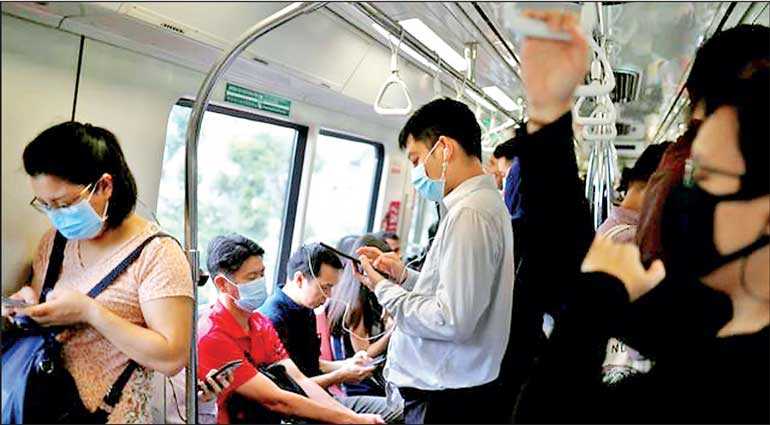Sunday Feb 22, 2026
Sunday Feb 22, 2026
Thursday, 27 February 2020 00:00 - - {{hitsCtrl.values.hits}}

SINGAPORE (Reuters): A Chinese national who contracted coronavirus has been charged by Singaporean authorities for allegedly giving false information about his whereabouts in the city-state and could face up to six months in jail.
Singapore has won international praise for its fastidious approach in tackling the virus - which has included using police investigators and security cameras to help track suspect carriers. The wealthy island state, an important regional financial centre and transport hub, has confirmed 91 cases so far.
The health ministry yesterday said it had charged a 38-year-old man from Wuhan, the Chinese city where the virus first surfaced late last year, and his wife who resides in Singapore for allegedly providing false information to authorities about their movements for contact tracing.
The husband had been confirmed to be infected with the virus in late January, and has since recovered, while his wife had been quarantined due to her close contact with him.
The health ministry said “detailed investigations” had established their true movements and they were charged “in view of the potentially serious repercussions of the false information...and the risk they could have posed to public health”.
Charges under the Infectious Diseases Act are rare and this is the first case during the coronavirus outbreak in Singapore. First time offenders under the Act can be fined up to S$ 10,000 ($ 7,147) or imprisoned for six months, or both.
Also yesterday, Singapore said a 45-year-old man lost his residency status after failing to comply with an order to stay at home for 14 days when he returned from China. The city-state - known for its tough laws - has also cancelled work passes and cut employers’ rights to hire foreigners for breaches of other virus prevention measures.